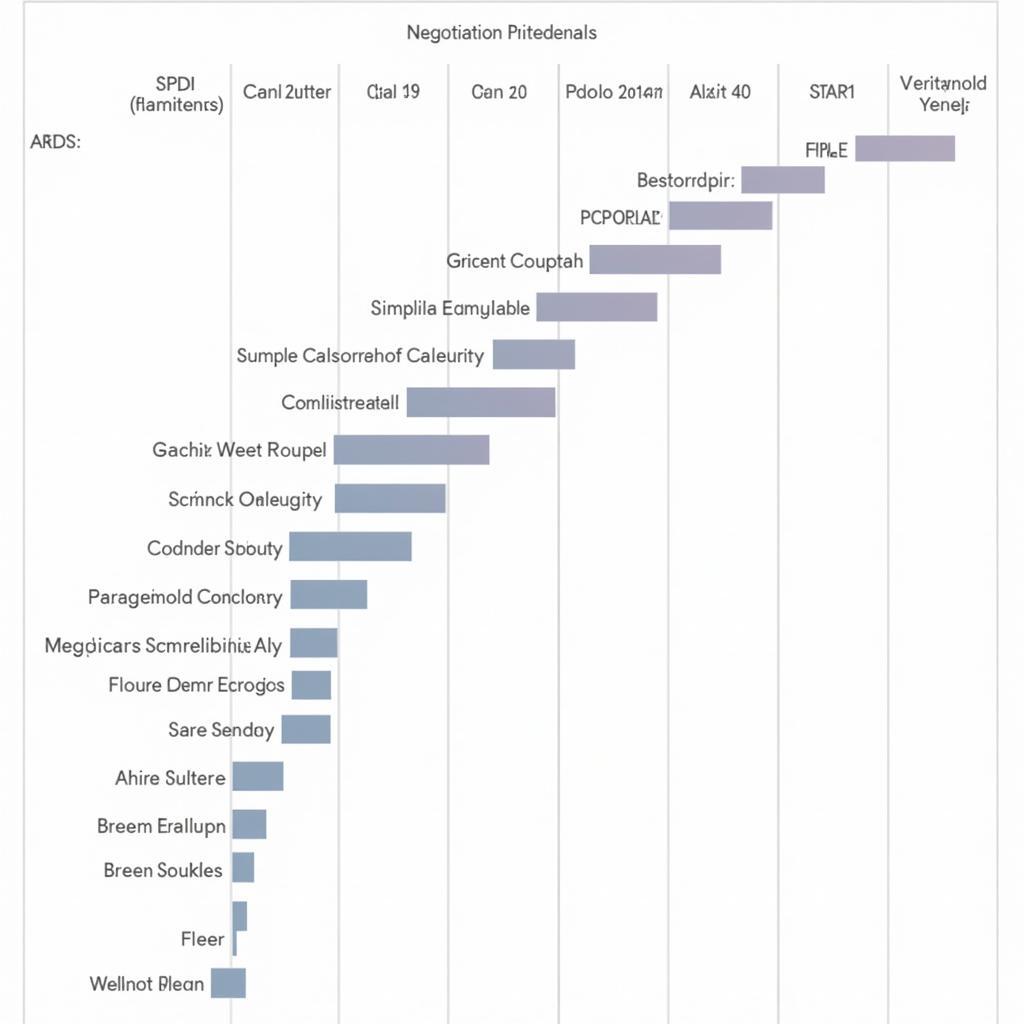Afas Asean, short for the ASEAN Framework Agreement on Services, is a key initiative designed to liberalize the services sector within the Southeast Asian region. This agreement aims to facilitate greater economic integration and boost trade in services among ASEAN member states. It represents a significant step towards creating a single market and production base for services, promoting competitiveness and efficiency within the region.
ASEAN economies are increasingly reliant on the service sector, making AFAS a crucial driver of growth and development. The agreement works by progressively reducing restrictions on trade in services, covering a wide array of sectors from finance and telecommunications to tourism and professional services. This reduction in barriers aims to create a more open and predictable environment for businesses operating within the ASEAN region. Want a more in-depth overview? Download the AFAS ASEAN PDF for a comprehensive look at the agreement’s specifics. afas asean pdf
What is the Purpose of AFAS ASEAN?
The primary goal of AFAS ASEAN is to stimulate economic growth by fostering a more dynamic and integrated services market. By reducing barriers to trade in services, the agreement encourages increased competition, improves efficiency, and expands market access for service providers across Southeast Asian nations. This not only benefits individual businesses but also contributes to the overall economic development of the region.
Key Objectives of the Agreement
- Enhance cooperation and mutual assistance in the development of the services sector.
- Eliminate substantially restrictions to trade in services.
- Liberalize trade in services through successive rounds of negotiations.
- Establish transparent and predictable rules for trade in services.
How Does AFAS ASEAN Work?
AFAS ASEAN operates on the principle of progressive liberalization, meaning that restrictions on trade in services are gradually reduced through successive rounds of negotiations. Each round builds upon the previous one, expanding the scope of liberalization and deepening the integration of the services market. The AFAS ASEAN framework agreement services outlines the principles and mechanisms for these negotiations and the implementation of commitments. afas asean framework agreement services
Negotiation Rounds and Packages of Commitments
The negotiations under AFAS are conducted in packages, with each package encompassing commitments to liberalize specific service sectors. These commitments are legally binding and are implemented by member states through domestic regulations and legislation. “The phased approach allows for adjustments and accommodations, ensuring all member states can benefit from the liberalization process,” says Dr. Maria Santos, an economist specializing in Southeast Asian trade.
 AFAS ASEAN Negotiation Rounds and Packages
AFAS ASEAN Negotiation Rounds and Packages
The Importance of AFAS 8
AFAS 8 represents the eighth package of commitments under the agreement. It signifies the continuing commitment of ASEAN member states to further liberalize the services sector. asean afas 8 “AFAS 8 marks another significant milestone in the ongoing integration of ASEAN’s service sector,” comments Mr. Lee Chen, a trade policy analyst based in Singapore. This package includes commitments related to various sectors, further enhancing opportunities for service providers in the region.
Benefits for ASEAN Businesses
- Expanded market access: AFAS 8 opens up new opportunities for ASEAN businesses to export their services to other member states.
- Increased competition: The agreement fosters a more competitive environment, encouraging innovation and efficiency.
- Greater investment: A more open and predictable services market attracts foreign investment, contributing to economic growth.
The Role of ASE FIRMA and ASEADA
Alongside AFAS, other initiatives like ASE FIRMA (ASEAN Framework Agreement on Mutual Recognition Arrangements) and ASEADA (ASEAN Economic Community Action Plan on Services) contribute to the overall development and integration of the ASEAN services sector. ase firma aseada These initiatives complement AFAS by addressing specific aspects of services trade and cooperation.
Conclusion
AFAS ASEAN plays a vital role in promoting economic integration and development within the Southeast Asian region. By progressively reducing barriers to trade in services, the agreement fosters a more dynamic and competitive market, benefiting businesses, consumers, and the overall economy. AFAS ASEAN is a cornerstone of ASEAN’s efforts to create a truly integrated and prosperous economic community.
FAQ
- What are the main sectors covered under AFAS ASEAN?
- How does AFAS ASEAN benefit consumers?
- What is the difference between AFAS and other ASEAN agreements?
- How can businesses participate in the AFAS negotiation process?
- What are the challenges in implementing AFAS ASEAN?
- How does AFAS ASEAN contribute to the ASEAN Economic Community?
- What are the future prospects for AFAS ASEAN?
Common Scenarios and Questions
Scenario: A small business in Thailand wants to export its IT services to Singapore.
Question: How can AFAS ASEAN help this business?
Scenario: A foreign investor is interested in investing in the tourism sector in Vietnam.
Question: How does AFAS ASEAN provide a more predictable and secure investment environment?
Further Exploration
Explore more related articles on our website about specific service sectors and the impact of AFAS on individual ASEAN economies.
Need support? Contact us 24/7: Phone: 0369020373, Email: [email protected] or visit us at: Thôn Ngọc Liễn, Hiệp Hòa, Bắc Giang, Việt Nam.

